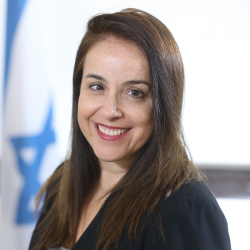
Japan is the third-largest economy in the world, with many multinational companies and a strong purchasing power. In comparison, Israel is a small player but being small isn’t necessarily a disadvantage.
The Israeli use the intense competition between the much larger Japanese, Americans, Europeans, and Chinese players to fuel their own market by selling innovation rather than products.
Titans like Japan feel comfortable working with Israel and the work of Zeev Weiss is to thank. Nowadays the chairman of The Israel-Japan Chamber of Commerce, Zeev has spent much of his career creating bridges; making sure that Japanese businesses can work with Israel free of worry about discrepancies in law and culture – and vice versa.
We were able to speak with Zeev, who offered us his insights on enabling smooth cross-border transactions, based on his own work with businesses in Israel and Japan.
目次
The only Israeli lawyer in Japan
Zeev started as a lawyer. Fresh out of university, he founded his firm, Weiss Porat & Co.
A visit to his friend at the Israeli embassy in Tokyo would become a turning point that set Zeev’s eyes on Japan.
“My friend told me about a Japanese company that had signed an agreement to license software from an Israeli company and got into a legal issue. They had an agreement to distribute locally in Japan and they invested a lot of money in the localization. Then the Israeli company went bankrupt, and the Japanese didn’t know what to do.”
“Today, it’s customary for the know-how (source code) of a product to be with a trustee at the time of signing a contract, in case there are any problems in the future. They didn’t take care of it and the Japanese found themselves without knowing how to proceed. Back then I was probably the only Israeli lawyer in Japan, so they hired my services and we managed to get a deal.”
“I did a great deal to make connections”
The deal made Zeev hungry for more. The Japanese companies knew hardly anything about Israel, so he decided to take a proactive and unconventional approach and encourage these companies to work with Israel.
“I wanted to work on Japanese-Israeli matters, so I did a great deal of work to make connections, not typical for lawyers who usually sit and wait for clients. And I succeeded, I persuaded them to come to Israel, I introduced them to Israeli companies and that's how deals were made. This is how I created clients. They needed a local lawyer and the services we offer.”
Because of Zeev’s efforts, Weiss Porat & Co now represents many Japanese companies in Israel. “We have a lot of experience working with the Japanese. We have deep bonds with our Japanese clients who have been with us for over 20 years.”

Mediating legal and cultural discrepancies
Law is integral to culture, and culture to law, says Zeev, who is well aware of culture affairs – he even did his Master in Asia studies specializing in Japan at Tel Aviv University.
A classic example is the concept of a contract. In Japan, written contracts are less important, what matters is the intention of the parties to work together and the mutual trust, whereas in Israel (like in the West) the written contract is very detailed.

Zeev recounts how in the beginning his Japanese clients (including Japanese Governmental agencies) would use short contracts to work with Israelis, not specifying what would happen if worst comes to the worst. In Israel, the contract anticipates points of crisis and conflict and gives a solution in advance.
“I have had cases of Japanese clients who used a standard Japanese contract and I had to make it clear to them that in terms of working in Israel, such a short contract is not used because if there is a problem it will be difficult to get the remedy. I had to convince them to create a more detailed contract. But in the end, they were glad they got my advice.”
Zeev proudly recalls a letter he received from the Government of Japan complimenting him for the way he delicately handled a complicated matter on behalf of the Government.

The language was another big obstacle to navigate but Zeev feels that the trust and loyalty he has built with his clients makes it all worthwhile. “The moment you gain their trust they will not give up on you easily. They are also very serious and profound people, and until something is clear to them, they will not give up.” Today the “Japanese” team at Zeev's law firm consists also of his son, Advocate Eylam Weiss, who specializes in complicated transactions between Japanese and Israeli companies, and Shira Prion, who is Japanese and an Israeli qualified lawyer (the only Japanese lawyer in Israel).
Where Japanese and Israeli businessmen meet
Zeev’s cross-cultural work has been further extended via the Chamber of Commerce. As the main platform for facilitating exchange between businesses in Israel and Japan, Zeev sees a real mission in serving as the elected Chairman of this organization, which further encourages and supports business between Israel and Japan.
“The Chamber of Commerce is the main platform through which the Japanese business community meets with the Israeli business community. There are a lot of players in this field, a lot of government institutions, and Japanese and Israeli business organizations, but the only place that consists of the businessmen themselves is the Chamber of Commerce. Here, the Japanese businessmen meet the Israeli businessmen.”

In normal times, the bureau hosts Japanese delegations that come to Israel to meet with Israeli companies – which as of late has been replaced by zoom meetings. They also publish a monthly newsletter in which Israeli businesses can present themselves, and provide solutions for Japanese companies looking for Israeli partners or assistance in Israel.
The work of the Chamber of Commerce is supported by the very institution that provided Zeev with the first opportunity to work with Japan.
“We are very much assisted by the Israeli embassy in Japan and Ambassador Yaffa Ben Ari, who is excellent and very professional. The role of ambassadors, from an economic aspect, is very important when it comes to developing relations between countries.”
Weiss Porat & Co. website
The Chamber of Commerce website




